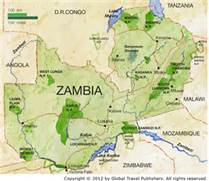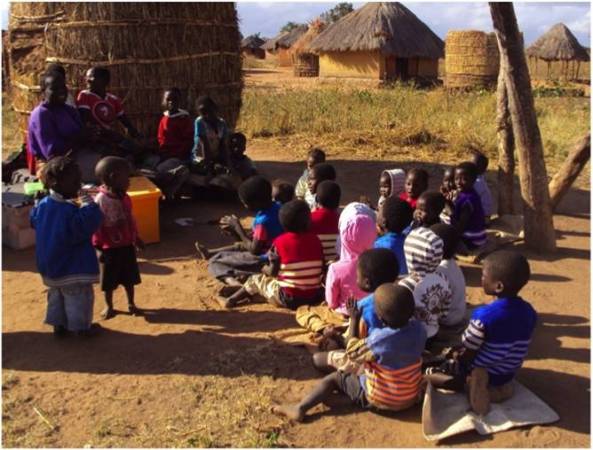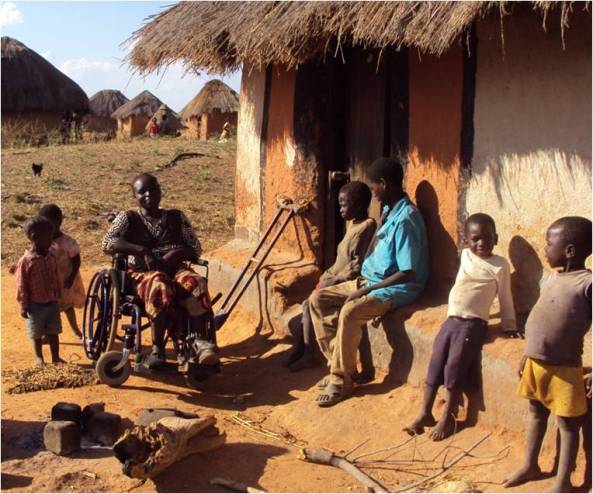Ana Lucia Santos is a Brazilian woman with a mission. Her efforts were largely responsible for the recent successful conference, Transforme, at which Darrow Miller was a keynote speaker. Ana agreed to tell us a little bit about herself.
 1. Please tell us a little about your background and story.
1. Please tell us a little about your background and story.
I grew up in the north part of Brazil. My father is a church planter and pioneering was part of our family life. He served in very unusual places, especially among the underprivileged and those in conflict with the law.
When I was nine years old, I received a specific call to be a missionary. At 17 I tried different venues, including attending 18 months of civil engineering school, starting a business and traveling. But God had in mind something bigger than myself, beyond my dreams.
At 20 I joined Youth With A Mission (YWAM). After attending the Discipleship Training School in Belem, in northern Brazil, I served with Mercy Ships for two years and then joined the YWAM base in Tyler, Texas. After completing two training schools (Evangelism and Frontier Mission), I decided to attend Foundations in Community Development training. This school was directed by Christine Colby, and Vishal Mangalwadi, Bob Moffit and Darrow Miller came together to teach at the same time.
By now I understood that missions was more than just saving souls. My heart for the underprivileged was growing stronger. I knew I had been called to see the invisible ones. But I also knew that feeding and clothing them wouldn’t change their lives. I might feel better, but God was directing me to see that even after teaching people how to fish if they couldn’t get into water to catch the fish, the whole lesson would be no more than a busy time of fellowship for everyone involved.
A new believer from a Muslim background once asked me, “What is the Christian way to be just?” As a Muslim he had trusted the Koran to teach him, but as a new Christian he didn’t have answers. For a few days I struggled with this question. I knew Christians had good motives, but we separate the “secular” and the “sacred” and end up using humanistic values and ideas.
I came to see that as agents of transformation we should be influencing decisions at all levels. We must make known God’s truth as the solution for the chaotic and corrupted systems ruling so many nations.

I began to ask God for His favor to get into the offices of policy makers and legislators in governments. Even Christians involved in government are often influenced by a Greek dichotomy and fail to operate from a biblical worldview in the area of justice. Instead of biblical concepts they use humanistic ideas in their life work.
It became my food to see God’s “Kingdom come and His will be done,” to see His Justice and Mercy applied. This is what I want to do until I die.
My desire is to influence decision makers as well those directly affected by those decisions. This why I am choosing this path of justice and mercy. In particular, I want to be directly involved in the rescue and restoration of children and women in high risk situations.
Another personal goal is to continue to help others connect their vocation with the Kingdom of God.
2. What has been your history with the DNA?
I believe my history with DNA started even before DNA started! In 1994 I met Darrow Miller and Bob Moffitt in Tyler, Texas. It was a divine appointment in my life; crazy, but good! Darrow and Bob were trying to see how the messages about worldview, the Kingdom of God, and transforming communities could come together. We were meeting in a classroom but I felt like I was inside a lab. My brain was exploding(!) but my heart was completely happy to know that God was giving me a tool that I must not let go of. I embraced both of these brothers with my heart and since that time we have worked together as much as possible. Whenever I work with them, I grow very much and I am able to take others with me.The DNA message was simple and challenging at the same time. When Darrow and Bob came to northern Brazil to hold a vision conference, more than 700 leaders and pastors attended.

Ana with family members
I joined a Brazilian development organization on their earlier days, CADI, a ministry that was just beginning in the south of Brazil based on DNA teaching. CADI has had strong success with concrete results in education, healthcare, business, and other areas.
Another turning point came after I started relief work at a women’s prison in Northern Africa in 1998. The prison management accepted our proposal and decided to train female guards to replace the male guard who often abused the prisoners. The trainer for the first week was Darrow Miller.
Many of the trainees in Darrow’s workshop were Muslims from the Ministry of Justice department. He lectured on the dignity of the human life, focusing especially on women. He was not allowed to use the Bible, yet was teaching Muslims the truth. I saw firsthand the changes in these women; they no longer treated the prisoners as inferior.
I came to see that we needed to redeem the church’s view of vocation. We needed to reach each individual so they could connect their vocation with the Kingdom of God as their specific calling. In my mind this was revolutionary; this could change the way we have been doing and perceiving missions. I loved it!
3. How has the DNA message impacted your life?
By understanding that “In the total expanse of human life there is not a single square inch of which the Christ, who alone is sovereign, does not declare, ‘That is mine!’” The most impacting message is to see how Darrow doesn’t just teach it, but he lives it. Because of Darrow’s and Bob’s simplicity, even I am able to grasp how knowledge and revelation can come together.
4. What can you tell us about your DNA-type ministries or activities?
For the past four years I have been working with young people from my church. I see it as a golden opportunity, as most of them have graduated, and have been in some type of training (such as a YWAM Discipleship Training School) and they are so open to learn. We started by having field projects combined with our Mentorship Training School. Because people are different, we decided to include in their studies, the spheres of influence in the context of living here.
The experience has been amazing as I can see today how our students and church people talk about worldview, life work, and politics with a different view, having good consequences. It is still a small percentage, but my heart rejoices as I see that it is not just activities, but a small glimpse of what the Lord is doing around the world. I see today in some of our projects children not throwing garbage on the ground but starting to understand their role as God’s agents of transformation. At the same I see others in the field of politics doing and thinking differently because they see themselves now as monitors of laws, calling out the church into God’s mandate in this arena.

Transforme 2010 School Commissioning
5. What most encourages you about the recent Transforme conference?
The possibility to see more people engaged in the mandate of discipling the nations, leaving with a new paradigm and being inspired to connect their vocation with God’s Kingdom.
6. What do you hope to see different as a result of this conference?
I hope we come out with a mentorship network throughout Brazil, where individuals living in mega-cities or on the Amazon where there is little access to information, could exchange ideas and results as the message of Life Work is exposed.
















